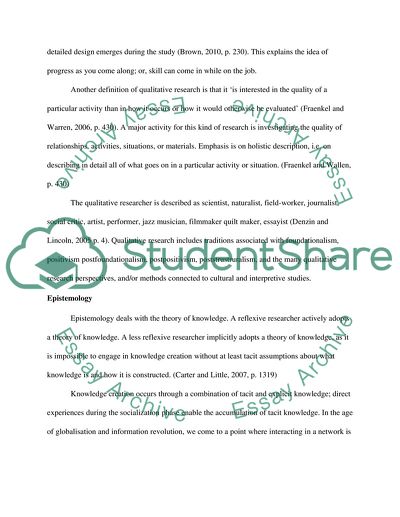Cite this document
(Critically Evaluate The Use of Qualitative Methodologies Research Paper, n.d.)
Critically Evaluate The Use of Qualitative Methodologies Research Paper. Retrieved from https://studentshare.org/systems-science/1738470-critcally-evaluate-the-use-of-qualitative-methodologies-within-the-social-sciences
Critically Evaluate The Use of Qualitative Methodologies Research Paper. Retrieved from https://studentshare.org/systems-science/1738470-critcally-evaluate-the-use-of-qualitative-methodologies-within-the-social-sciences
(Critically Evaluate The Use of Qualitative Methodologies Research Paper)
Critically Evaluate The Use of Qualitative Methodologies Research Paper. https://studentshare.org/systems-science/1738470-critcally-evaluate-the-use-of-qualitative-methodologies-within-the-social-sciences.
Critically Evaluate The Use of Qualitative Methodologies Research Paper. https://studentshare.org/systems-science/1738470-critcally-evaluate-the-use-of-qualitative-methodologies-within-the-social-sciences.
“Critically Evaluate The Use of Qualitative Methodologies Research Paper”, n.d. https://studentshare.org/systems-science/1738470-critcally-evaluate-the-use-of-qualitative-methodologies-within-the-social-sciences.


